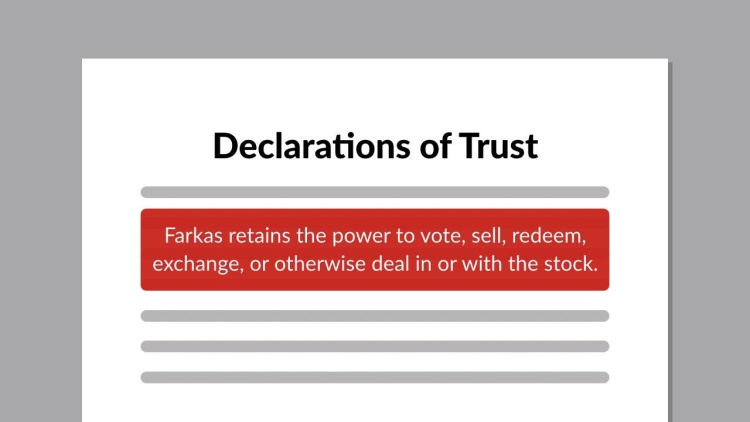Farkas v. Williams
Illinois Supreme Court
5 Ill.2d 417, 125 N.E.2d 600 (1955)

- Written by Christine Raino, JD
Facts
Albert B. Farkas died without a will, but certificates of stock in Investors Mutual, Inc. (IMI) were found in a safe-deposit box after his death. IMI held four declarations of trust that Farkas had executed and submitted with his applications to purchase the stock. The declarations of trust were identical except for the dates and provided that the stock certificates were to be issued in Farkas’s name, “as trustee for Richard J. Williams as beneficiary.” Williams (defendant) was an employee in Farkas’s veterinary practice for many years. The trust declarations also provided that Farkas, as settlor, was to receive all of the cash dividends during his lifetime and that he had the right to change the beneficiary or revoke the trust. As sole trustee, Farkas had the power to “vote, sell, redeem, exchange or otherwise deal in or with the stock” and the right as settlor to retain the proceeds of any sale or transfer. The declarations further provided that Williams, as beneficiary of the trust, would receive the assets of the trust upon Farkas’s death. However, the trust would be automatically revoked if Williams predeceased Farkas. Additionally, the declarations provided that any change or revocation of the trusts was not effective as to the IMI stock unless and until written notice was delivered to IMI. Farkas’s heirs at law (plaintiffs), acting as administrators of Farkas’s intestate estate, asked the court to declare the declarations of trust testamentary. The heirs at law asserted that Farkas retained complete control over the trust during his lifetime. They further asserted that the trusts were invalid because they were not executed with the required formalities of a will, thus making the shares of IMI stock part of the intestate estate. The circuit court held that the trust declarations were testamentary and awarded the IMI stock to Farkas’s heirs at law because the trusts were not executed with the formalities required for valid execution of a will. The appellate court affirmed, and Williams appealed to the Illinois Supreme Court.
Rule of Law
Issue
Holding and Reasoning (Hershey, J.)
What to do next…
Here's why 907,000 law students have relied on our case briefs:
- Written by law professors and practitioners, not other law students. 47,100 briefs, keyed to 996 casebooks. Top-notch customer support.
- The right amount of information, includes the facts, issues, rule of law, holding and reasoning, and any concurrences and dissents.
- Access in your classes, works on your mobile and tablet. Massive library of related video lessons and high quality multiple-choice questions.
- Easy to use, uniform format for every case brief. Written in plain English, not in legalese. Our briefs summarize and simplify; they don’t just repeat the court’s language.





